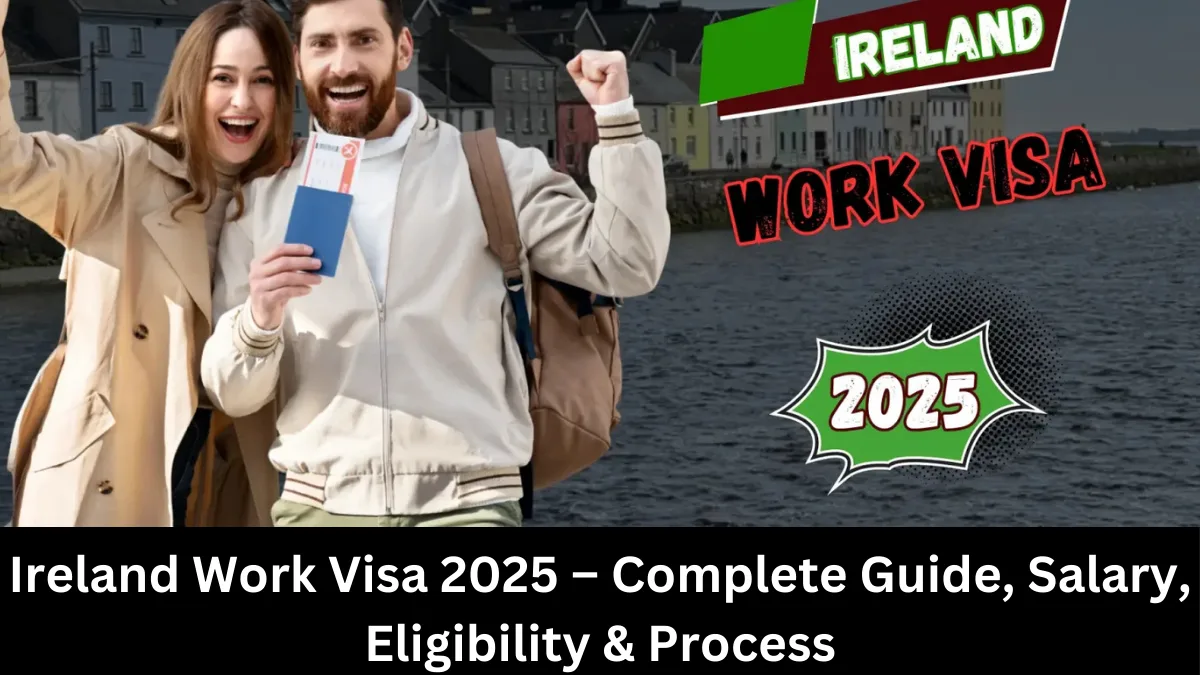Ireland has become a highly sought-after destination for professionals from around the globe, thanks to its flourishing economy and a constant need for skilled workers. The country presents significant career opportunities across various sectors, including information technology, healthcare, construction, and agriculture. For individuals who are not citizens of the European Economic Area (EEA), Switzerland, or the United Kingdom, obtaining an Irish work visa is a multi-step process that begins with an employment permit. This guide is designed to provide a detailed, step-by-step walkthrough of the entire procedure, from eligibility requirements to the final benefits of working in Ireland, ensuring you have all the necessary information to navigate your path to a career in this dynamic European nation.
Understanding the Ireland Work Visa System
The system for allowing non-EEA nationals to work in Ireland is highly regulated and depends on a series of employment permits. These permits are the foundational authorization needed and must be secured before you can apply for a visa. The system is strategically designed to address specific labor market shortages by ensuring that international professionals fill roles where there is a genuine need for their skills. The two most prominent types of permits are the Critical Skills Employment Permit and the General Employment Permit. Each of these is tailored to different job categories, salary brackets, and labor market needs, providing a clear framework for both employers and prospective employees.
Eligibility Requirements for an Ireland Work Visa
To be eligible for an Irish work visa, you must satisfy a set of strict and specific requirements. Applicants must be 18 years of age or older and must be medically fit. A valid passport is a mandatory document, and it must have a minimum validity of six months beyond your planned stay in Ireland. A crucial part of your application will be a police clearance certificate, which verifies that you have no criminal history. The most vital component, however, is a confirmed job offer from a company in Ireland that is approved to hire non-EEA nationals. The salary for this job must meet the minimum threshold specified by the Irish government for the respective permit type. Furthermore, your academic credentials and professional experience should align with the job’s requirements, especially if the role is on the Critical Skills Occupations List.
Key Requirements for Application
A successful application for an Irish work visa requires the meticulous preparation of numerous documents. Your valid passport serves as the main proof of identity. You will also need to fill out a complete visa application form, which is typically submitted online. Recent passport-sized photographs that adhere to specific standards are also a requirement. A signed and dated job contract or an official offer letter from your Irish employer is the most critical piece of documentation, as it validates your employment details and salary. You must provide certified copies of your educational degrees and work experience certificates to demonstrate your qualifications. A police clearance certificate from your home country is necessary to prove a clean legal record. In addition, you will need to show proof of accommodation in Ireland, such as a rental agreement or a letter from your employer confirming your living arrangements. Lastly, you must secure and provide proof of comprehensive medical and health insurance coverage for the duration of your stay.
The Step-by-Step Application Process
The process of obtaining an Irish work visa is methodical and involves several distinct phases. The first and most essential step is to find a job and secure a formal offer from a recognized Irish employer. Once you have this offer, you must apply for the relevant employment permit through the Employment Permit Online System (EPOS). This online platform is where you will upload all your supporting documents. The Department of Enterprise, Trade, and Employment will then review your application, a process that can take a number of weeks. Once your employment permit is approved, you can proceed with the visa application itself. This involves applying for a long-stay ‘D’ visa at the Irish Embassy or Consulate in your country of residence. Upon receiving your visa, you are authorized to travel to Ireland. The final critical step after your arrival is to register with the local immigration authorities and obtain your Irish Residence Permit (IRP) card within 90 days. This card serves as your legal documentation to live and work in the country.
Types of Employment Permits
There are two main categories of employment permits, each designed to serve different sectors and skill levels.
1. Critical Skills Employment Permit: This permit is specifically for highly skilled professionals in occupations where there is a significant skills shortage in Ireland. These roles are typically found in the IT, healthcare, and engineering sectors. The salary threshold for this permit is higher, reflecting the specialized nature of the work. For jobs on the highly skilled occupations list, the minimum annual salary is €38,000. For jobs not on this list but with a degree and an annual salary of at least €64,000, this permit can also be an option. A key advantage is that it does not require a labor market needs test.
2. General Employment Permit: This permit is for all other occupations that are not on the Critical Skills list but are still in demand. The minimum annual salary for this permit is typically lower, at €30,000. This category covers a broad range of sectors, including construction, hospitality, and many others. Unlike the Critical Skills permit, an employer must first perform a labor market needs test to prove they have made a genuine attempt to recruit a citizen from the EEA for the position before offering it to a non-EEA national.
Processing Times and Costs
The total time and financial investment required for the Irish work visa process can vary. The employment permit approval phase generally takes between 6 to 8 weeks. After that, the visa processing at the embassy can take another 4 to 6 weeks. The associated costs include several fees. An application for a Critical Skills Employment Permit or a two-year General Work Permit costs €1,000. A six-month General Work Permit is priced at €500. The mandatory Irish Residence Permit (IRP) card itself costs €300. In addition to these, you should budget for other expenses, such as health insurance and miscellaneous application fees, which can range from €500 to €800. The estimated total cost for the entire process typically falls between €1,500 and €2,000.
Benefits of Working in Ireland
Securing an Irish work visa opens the door to a host of significant professional and personal benefits. Beyond the access to a thriving job market, a work visa provides the legal right to reside and work in a country known for its high quality of life. A major advantage is the clear and well-defined pathway to permanent residency, which can be pursued after just two years of continuous employment. Ireland’s family reunification policies are also a key benefit, allowing your spouse and dependent children to join you. For holders of a Critical Skills Employment Permit, their spouses are automatically granted permission to work, which greatly simplifies the process of settling in. The country’s attractive salaries, combined with its rich cultural heritage and welcoming population, make Ireland an excellent choice for those seeking both career stability and a fulfilling life abroad.
Average Salary in Ireland by Job Category
| Job Category | Average Annual Salary (€) | Approx. PKR (2025) |
|---|---|---|
| Healthcare Workers | €40,000 – €60,000 | PKR 12,800,000 – 19,200,000 |
| IT & Tech Professionals | €45,000 – €70,000 | PKR 14,400,000 – 22,400,000 |
| Construction Workers | €32,000 – €40,000 | PKR 10,200,000 – 12,800,000 |
| Agriculture / Farming | €28,000 – €35,000 | PKR 8,960,000 – 11,200,000 |





